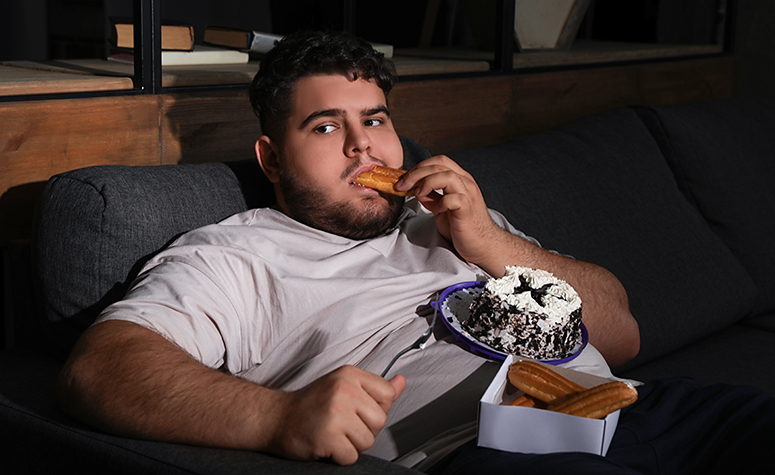Behavioural Addiction Explained?
Behavioural addiction, sometimes also known as impulse control disorder, is characterised by a compelling urge to repeatedly engage in certain behaviours, despite the potential negative impact on one’s well-being and that of others, whether physical, emotional, or financial.
Unlike drug addiction or alcoholism, where there’s a physical dependence on an external substance, behavioural addiction doesn’t involve such a dependency. However, the effects on the brain’s internal chemical processes, particularly in the reward system, are strikingly similar to those in substance dependencies, making the impact of behavioural addiction equally severe.
Why Certain Behaviours are Regarded as Addictions
Behavioural addiction, as a distinct field of study, is relatively new, though its impact has been observed for centuries. For example, gambling addiction, a subset of behavioural addiction, has long been recognised as a detrimental societal issue. With advancements in medical and psychiatric sciences, understanding and addressing behavioural addiction has become increasingly important.
Although there are no full diagnostic models yet for each type of behavioural addiction, it is accepted that a wide range of activities can lead to addiction. These activities can vary from common habits like shopping and exercising to activities associated with negative consequences, such as gambling and certain sexual behaviours.
The development of an addiction to these activities can differ greatly among individuals. Some may develop an addiction, while others might repeatedly engage in the same activities without becoming addicted. In general, behavioural addiction is believed to stem from dysfunctions in the brain’s reward circuitry. Any repeated behaviour that is harmful or potentially harmful, and which is difficult to stop despite understanding its damaging potential, can be classified as an addiction.
Are Behavioural Addictions Real Addictions?
Our understanding of behavioural addiction is still evolving, and while comprehensive diagnostic models are yet to be established, the reality of behavioural addictions as genuine addictions is undeniable. This perspective is supported by substantial neurological evidence. The American Society of Addiction Medicine, a foremost international authority on addiction, clarifies that addiction concerns brain functionality and circuitry. It highlights the fundamental differences in the brains of those with addiction compared to those without. Consequently, behavioural addiction is a distinct disorder in its own right, demanding a coherent treatment approach akin to that for drug addiction, despite the absence of any external physical substance causing dependency.

Factors that contribute to having a behavioural addiction
Every individual facing behavioural addiction has their own unique story, with personal circumstances shaping their experience. These factors extend beyond just neurological conditions. Behavioural addictions, much like other types of addictions, are influenced by a blend of personal, environmental, and biological factors.
Low self-esteem
An individual grappling with low self-esteem is often more prone to engaging in self-destructive behaviours, potentially leading to addiction. This can be attributed to various factors, including a diminished sense of self-worth, making self-damage appear less concerning, and a tendency to prioritise others’ satisfaction over their own well-being and happiness. For instance, one might recurrently partake in dangerous, excessive, or promiscuous sexual activities, which could quickly develop into an addiction, driven by a lack of self-respect and a sense of obligation to please others.
Individuals with low self-esteem are also more likely to persist in behaviours that reduce their chances of self-improvement or increase the likelihood of facing negative consequences. For example, someone addicted to video gaming might continuously indulge in their habit for extended hours daily, sacrificing their physical fitness and health, instead of engaging in exercise or improving their education and career prospects. This is often because they don’t perceive themselves as worthy of the ‘investment’ such activities represent.
Trauma, loss, and guilt
Experiencing trauma, enduring the loss of a loved one, or dealing with intense guilt (whether justified or not) can make a person more susceptible to engaging in addictive behaviours. These behaviours, such as gambling, sexual activities, or compulsive shopping, serve as a means of escaping painful memories or challenging life situations.
Although such actions do not tackle the underlying issues causing distress, they offer short-term stimulation and a form of escapism, which can be extremely compelling. Engaging in these behaviours habitually can quickly lead to addiction, even though they might initially seem like a temporary escape.
Poor social and communication skills
Individuals with less developed social or communication abilities might find themselves gravitating towards certain pursuits, such as specific types of video gaming. These activities can foster a sense of belonging, despite not placing a heavy emphasis on interpersonal skills.
Conversely, people with these traits might also be drawn to activities that offer stimulation and gratification without the need for social interaction. Activities like gaming, electronic or digital gambling, internet browsing, pornography, and others can be pursued in solitude. These activities only require a private space, an internet connection, and possibly a computer or gaming console.
The rise of online shopping and food delivery services has further enabled some individuals to lead highly inclusive lives. This lifestyle allows for engaging in compulsive behaviours for extended periods daily, with minimal to no meaningful interaction with others and as such easier to hide.

Fast Access to Residential Treatment
We are currently able to offer fast access to private inpatient treatment.
Please call us today and speak to one of our expert advisors.
Call today in confidence: 0800 0148 970
Types of Behavioural Addiction
As previously mentioned, any activity that is repeatedly engaged in has the potential to become addictive, depending on its impact on brain chemistry. Nonetheless, certain activities have been identified as more commonly linked to addictive behaviours. Indeed, many individuals regularly involved in these activities have found the need to seek professional help for their addictions.
It’s crucial to understand that merely partaking in these activities, even frequently and regularly, does not inevitably result in addiction for everyone. Rather, these particular activities have been observed to be a contributing factor in the development of addiction in some individuals.

Gambling addiction
Widely acknowledged in society for centuries as a form of addiction, the clinical understanding of gambling addiction has significantly evolved in recent times. Indeed, gambling addiction is uniquely categorised as a behavioural addiction in the Diagnostic and Statistical Manual of Mental Disorders, Fifth Edition (DSM-5). This manual is a primary resource for psychiatric diagnosis not only in the United States but across much of the globe.
The intense excitement of risking significant amounts of money or other valuables, and the buzz of winning, have a very strong and immediate effect on the brain, especially the reward centre. This can lead to a repeated urge to gamble to experience such highs again. At the same time, the distress of losing can push you into gambling more in an effort to win back your losses. These factors together make gambling a very powerful influence on the brain and can lead to addiction quite rapidly.
Gambling addiction can be one of the most harmful addictions in terms of its ability to quickly ruin a person financially. This has obvious effects on life circumstances and relationships. Even very wealthy people can become penniless if they let their gambling problem escalate into an addiction and lose control.

Sex addiction
The intense physical and possibly emotional aspects of sex make it a highly valued part of most people’s lives. Desiring regular sexual activity is normally seen as healthy. However, for some individuals, the drive to constantly engage in sexual activities for repeated gratification is overwhelming, with any sense of satisfaction or fulfilment quickly diminishing. This pattern of behaviour is increasingly recognised as sex addiction by health professionals worldwide.
Engaging in highly promiscuous, risky, or taboo sexual behaviour adds an extra thrill beyond the basic physical enjoyment associated with sex, whether it’s within a relationship or not. For many, this added excitement becomes an increasingly sought-after experience, leading to addictive behaviour. Additionally, sex can be a way for people with low self-esteem or those looking for an escape to cope with their issues, often leading to addiction in these scenarios too.

Internet addiction
As a relatively new phenomenon, our understanding of internet addiction is rapidly evolving from its initial stages. Not all medical authorities currently recognise it as a distinct disorder. This hesitation often stems from a lack of comprehensive data, a common challenge in emerging fields of study.
Many healthcare experts are now recognising that excessive, habitual engagement with the internet, especially when it replaces other vital activities, including social interactions, can significantly impact an individual’s physical and mental health. Diagnosing internet addiction might still be somewhat subjective, but the compulsive use of the internet, to the point of neglecting all other life aspects, has driven thousands globally to seek help. In extreme cases, this addiction has proven to be fatal, with individuals neglecting basic necessities like sleep and food, overly absorbed in their online activities.

Shopping addiction
In our modern society, shopping is an unavoidable aspect of everyday life. However, for some individuals, the excitement of acquiring new items becomes a compulsive need. The act of spending money, often significant amounts and sometimes beyond one’s means or with funds not owned, can itself be thrilling.
Yet, the gratification derived from such purchases is usually short-lived, leading to a continuous cycle of buying to recapture that fleeting sense of joy, regardless of the necessity of the items. This behaviour is indicative of shopping addiction, also known as compulsive buying disorder. It can lead to severe financial consequences, potentially resulting in substantial and unmanageable debt.

Video game addiction
Similar to internet addiction, video gaming can be highly addictive, leading to detrimental effects such as social withdrawal, emotional numbness, and various physical consequences, particularly from insufficient exercise and sleep. The intense excitement and recurrent rewards in gaming, coupled with minimal social interaction, compel individuals to engage in prolonged gaming sessions. This can adversely impact educational and career opportunities, not to mention the potential harm to physical and mental well-being.
Game developers have increasingly excelled in crafting their games to be as engaging as possible. They expertly target the reward centres of gamers’ brains. In recent times, this has extended to include an increased focus on ongoing financial commitments within games. In-game purchases and micro-transactions, for instance, have made some instances of gaming addiction not only psychologically destructive but also financially devastating for those affected.

Plastic surgery addiction
Many individuals turn to cosmetic surgery for various reasons. However, in numerous cases, it is driven by a profound dissatisfaction with one’s own appearance, with the belief that altering it will bring improvement. In such instances, the initial euphoria post a successful surgery is often temporary, failing to address the root of their discontent. Consequently, they find themselves in a recurring pattern of undergoing further surgeries to reclaim that fleeting sense of joy and satisfaction, often resulting in severe implications for both their physical appearance and finances. In extreme scenarios, some individuals develop an obsession with embodying a particular ideal, be it another person or a fictional character. Their obsession to mirror this ideal image may involve undergoing numerous surgical procedures.

Risky behaviour addiction
The fascination with risk-taking dates back to ancient lore, epitomised by the story of Icarus, and has garnered a deeper understanding from a clinical perspective in modern times. The thrill of engaging in activities with the potential for harm or even fatality can offer an intensity of experience that everyday life fails to match, making the latter seem exceedingly mundane. This can drive some individuals towards increasingly frequent and dangerous risk-taking behaviours.
The appeal of risk varies widely among individuals. For some, the thrill lies in physically exhilarating yet dangerous activities like BASE jumping or high-risk sexual behaviours. These combine tangible physical excitement with significant danger and can evolve into an addiction. For others, the preferred risks might not offer immediate physical gratification but carry substantial potential consequences, such as gambling with money they cannot afford to lose, deliberately seeking out dangerous situations, or behaving in a manner that could disastrously impact their personal relationships or employment. In all these scenarios, it’s the thrill and sense of danger that becomes addictive. It’s critical to acknowledge that not all participation in risky activities constitutes addiction.

Food addiction
The range of eating disorders is wide, covering various conditions that don’t all involve an addiction to food. However, for some individuals, the instant pleasure of eating turns into a compulsive behaviour, with an increasing focus on food intake. This behaviour can lead to binge eating, possibly followed by purging, or constant snacking –particularly on foods that are high in sugar or fat. These eating patterns can cause strong chemical reactions in the brain, leading to severe dysphoria and depression afterwards, which can then drive the individual to eat more in an attempt to overcome these negative emotions.
Food addiction is frequently linked to obesity and associated health conditions, which can become life-threatening if not addressed. Moreover, the financial implications can be significant, whether due to the consumption of food that is unaffordable for the individual or because the addiction adversely affects their ability to work.

Exercise addiction
Engaging in regular physical activity is not only enjoyable but is a crucial component of maintaining good health. However, in certain individuals, the chase for these feeling of euphoria can become compulsive, turning exercise into an addictive behaviour. Furthermore, the drive to achieve a particular, often idealised, physique can become overly obsessive for some, leading to feelings of guilt if they skip exercising, even for a brief period.
In such instances, the likelihood of physical harm is significant, as over-exercising can lead to a wide range of health issues and is linked with a higher chance of injuries. Those struggling with an addiction to exercise might also face various withdrawal symptoms if they miss their usual exercise sessions. These symptoms can include changes in appetite, anxiety, insomnia, and headaches, which might push them towards other detrimental habits, including the misuse of substances.

Love addiction
Recognised in art and literature for centuries, love addiction is a less well-understood phenomenon, with medical experts differing in their views on its nature or even its recognition as a genuine condition. The deeply satisfying emotions experienced when falling in love can be incredibly compelling for some, leading them to seek out these feelings repeatedly, which can harm their current relationships and life stability.
For others, love is seen as a vital life goal or a means of validating their existence. However, when their ideal of “love” consistently falls short of their expectations, it leads them to a continuous search for new partners and experiences of love, often resulting in a cycle of discontent and endless searching.

Porn addiction
The easy access to pornography, especially online, has led to a lot of people watching it. In many cases, this has negatively affected how people feel about themselves, their relationships, and their approach to sex. A particularly alarming outcome of this trend is the rise of porn addiction, where individuals compulsively consume pornography—often of an extremely hardcore nature—to the detriment of their overall well-being.
Just watching porn doesn’t always cause problems. But for some, the need to watch as much porn as possible becomes more important than their social life, job, and relationships. They only feel happy when watching porn, and their life starts to revolve around it.
The pleasure of watching porn, frequently accompanied by masturbation can quickly go away after climaxing. This can leave someone feeling very guilty or even disgusted. Wanting to get back the pleasure and get rid of these bad feelings can lead to more porn watching, sometimes for a very long time. This can carry adverse health implications.

Fast Access to Residential Treatment
We are currently able to offer fast access to private inpatient treatment.
Please call us today and speak to one of our expert advisors.
Call today in confidence: 0800 0148 970
Living with Behavioural Addiction
At first, a behavioural addiction might not seem like a big deal. You might be able to hide it from others and keep living your life. But as the addiction gets worse, it becomes harder to live normally. This might be because you spend a lot of time on the behaviour, it costs a lot of money, or for other reasons. The addiction becomes the main thing you care about, and you might stop doing other things like hanging out with friends, spending time with family, working, or hobbies.
Like with other addictions, you might lie about how bad it is, or you might not even think it’s a problem, even as things get worse. You might need to find new ways to pay for your addiction, which could be dangerous or illegal. At the same time, you might start feeling a lot of bad emotions and have mental health problems as you feel more and more out of control and stuck in your addiction.
The Dangers of Behavioural Addiction
Every person is different, and the wide range of activities that might lead to behavioural addictions means the impact on your life can vary a lot. It can be minor or extremely serious, even deadly in some cases.
Most times, these addictions lead to some negative changes in your life. The costs – in money, health, and relationships – can be substantial. Some behavioural addictions carry the risk of death, either suddenly through risky behaviours or slowly due to health issues like obesity or AIDS.
Similar to drug addiction, behavioural addictions often escalate as the individual seeks increasingly intense experiences. This could manifest as heightened risk-taking, more time spent on activities like internet browsing, gaming, or viewing pornography, being more sexually active, or trying more extreme things. This can speed up the damage to one’s lifestyle and future prospects.
Engaging in addictive behaviours typically leads to increased isolation, damaging relationships with family and friends. It can trap individuals in a cycle of gratification and guilt, potentially leading to depression and other mental health issues. Life starts to feel less meaningful, and existence without the addictive behaviour seems unbearably dull.
Even for those whose addictions haven’t led to the worst outcomes like death, serious injury or illness, losing everything, or permanent loss of relationships, a lot of help (like therapy) might be needed to find joy and satisfaction in normal life again.

Signs and Symptoms of Behavioural Addictions
It’s widely recognised that different behavioural addictions manifest with varying symptoms, for example, someone addicted to exercise might suffer from injuries, while a video game addict could develop obesity. Generally, a common indicator of behavioural addiction is an escalating obsession with a certain activity at the expense of other life aspects. If you’re struggling with such an addiction, you might neglect activities and relationships you once enjoyed, focusing instead on the addictive behaviour.
Often, these addictions come with a significant financial burden, which tends to become more noticeable over time. Some lead to clear health issues (like injuries or illnesses), many negatively impact work performance. Eating and sleeping patterns may become severely disrupted, while behaviour can grow more unpredictable as the addiction worsens. You may find yourself acting in ways that are out of character, causing distress or harm to those around you. Denial of the issue is typical, even in the face of obvious evidence, and you might reject any suggestion of needing help, despite possibly recognising the gravity of the problem internally.
Behavioural Addictions Versus Drug Addictions:
Differences and Similarities
In the study of addictions, behavioural addiction is a more recent area of focus compared to substance addiction. A significant difference between the two is that behavioural addiction does not typically involve physical dependence, though it’s important to note that not all drug addictions are physically addictive either.
In both instances, regular engagement in an activity (be it consuming drugs or another behaviour) can lead to addiction, although this isn’t a certainty for everyone. The brain processes driving both behavioural and substance addictions seem to be quite similar.
The impact of either addiction type can be profoundly destructive, occasionally resulting in physical harm or even fatality. Therapeutic treatment is available for both behavioural and substance addictions, with no “miracle cure” existing for either.
FREE Addiction Assessment
If you or a loved one are struggling with addiction, we understand the challenges you’re facing and we’re here to offer compassionate help.
Our highly trained advisers are available to speak to you right away, simply call 0808 252 3379 today.
We can discuss your concerns in complete confidence, explore the options for treatment, and help you to understand what will work best for you.
We’ll also help you to book your free addiction assessment there and then, with appointments usually available within only a few days.
We understand that taking the first step can be the most difficult, but we’re here to support – with no pressure or judgement.
Professional and compassionate help is just a phone call or click away.
Neurological Characteristics of Behavioural
and Substance use Disorders
The root of most substance addictions and potentially behavioural addictions lies in the brain’s reward centre. This system is not just about producing feelings of pleasure, as commonly thought, but more about creating a desire to repeat certain behaviours. The brain releases dopamine, which stimulates specific receptors, mainly in the amygdala and the ventral tegmental area, leading to the urge to replicate these behaviours.
When the brain becomes accustomed to these sensations, dopamine production increases through activities like consuming addictive substances or engaging in certain actions. This leads to enjoyable feelings when the behaviour is repeated and discomfort when it’s not, due to a decrease in dopamine and other chemicals.
Over time, the brain develops a tolerance to these dopamine levels, requiring more substance use or more intense activities to achieve the same level of satisfaction. Conversely, avoiding these behaviours for a long period can help the brain adjust, reducing or even ending the addiction.
When Behavioural Addiction Becomes Out of
Control and Professional Help is Needed
There’s no definitive threshold for determining when addiction becomes overwhelming. Nevertheless, it’s generally agreed that recognising addictive behaviours early and seeking help promptly can significantly reduce the risk of long-lasting, severe consequences. If you’re finding it difficult to stop a particular behaviour, this is a likely indicator of addiction. Additionally, if your actions are detrimentally impacting your personal relationships, financial health, employment status, or overall life circumstances — or causing you mental or physical distress — it signifies the need for a change and the importance of seeking professional guidance.

Though no one can go back and make a
brand-new start, anyone can start from
now and make a brand-new ending
Mental Health, Behavioural Addictions, and Dual-Diagnosis
Individuals with existing mental health conditions might be at a higher risk of developing behavioural addictions, though this is not always the case. Conversely, behavioural addiction can lead to other mental health issues, such as depression and possibly in more severe cases psychosis.
Certain behavioural compulsions, like sex addiction, can lead to a phenomenon known as cross-sensitisation, significantly increasing the risk of substance abuse disorders. This, in turn, escalates the probability of encountering further mental health complications. When someone is dealing with a behavioural addiction alongside another mental health condition – a condition medically referred to as dual diagnosis – necessitates a specific treatment approach.
Treatment for behavioural addiction
Behavioural addiction can be treated, often through therapy and, in some cases, with the support of medication (though it’s important to note that there are no specific medicines for treating behavioural addictions). Nonetheless, the expertise in managing such addictions is growing annually, offering hope to countless individuals seeking to reclaim control over their lives.

5 key steps to behavioural addiction recovery:
- Diagnosis and evaluation
Before starting any treatment, a complete psychiatric diagnosis and evaluation of your condition is crucial. This isn’t something you can do on your own, no matter how severe you think your situation might be. Your initial step should be to consult your GP, who can conduct a preliminary assessment and, if necessary, refer you to a specialist. You might also choose to contact an addiction specialist directly.
Although there’s no unanimously accepted set of diagnostic criteria for certain behavioural addictions, in most instances, if the situation is serious enough to require treatment, this will be clear to healthcare professionals.
- Treatment plan
When it’s determined that treatment is necessary, the chosen service or facility will formulate a personalised treatment plan tailored to your specific needs. This plan will detail the approach to treating your condition, any medications that are prescribed, and the anticipated duration and phases of the treatment. Additionally, the plan may incorporate aspects like a personalised dietary and fitness regime. It’s important to understand that each treatment plan is uniquely crafted to the individual’s situation and should not be replicated by others.
- Detox
Detoxification, commonly referred to as “detox,” is the process of removing toxic substances from the body of an individual who is dependent on substances of abuse. This stage is often accompanied by withdrawal symptoms. In cases of behavioural addiction, where physical substances are not involved (except when coupled with a substance abuse disorder), withdrawal symptoms can still occur, making a detox period a critical component of the treatment plan.
- Family support
The involvement of family is essential in overcoming addiction. The impact of an individual’s addiction can significantly affect the family. Some treatment centres incorporate therapy models that include family involvement directly into the treatment process, while others offer support to family members alongside the treatment provided to the individual with the addiction.
- Therapy
Therapy stands as a fundamental part of addiction treatment, offering a variety of models and methods. Cognitive Behavioural Therapy (CBT) is commonly used, focusing on identifying triggers and changing unhealthy behavioural patterns.
Motivational Therapy (MT) is another widely used approach, which encourages individuals to reflect on the negative aspects of their behaviour and motivates them to make a change. The specific therapy models used may vary from one treatment facility to another, and individuals might need to try different therapies to find the one that best suits their needs.

Alternative Treatment Approaches
In addition to the conventional routes of psychotherapy and medication, there’s a growing recognition of alternative therapies that can play a significant role in addiction treatment. These can be offered within treatment facilities or sought independently:
- Meditation
Proven to be effective in numerous addiction cases, meditation serves as a vital coping mechanism that continues to be beneficial long after the immediate challenges of addiction have diminished. - Prayer
For individuals with spiritual beliefs, engaging in prayer and connecting with a higher power can be essential in overcoming addiction. - Art or Expressive Therapy
The process of creating art can be incredibly healing, leading to an improved sense of self-worth and a broader outlook on life, which can significantly alter one’s perspective and aid in recovery. - Nature Retreats
Spending time in the serene beauty of nature can offer profound psychological and emotional benefits, offering a peaceful escape from the pressures of modern life that may have contributed to the addiction.
Facts About Behavioural Addiction
- In the UK, over 400,000 people are dealing with gambling addiction, with in excess of more than 2 million at risk. Around one in ten teenagers engaged in gaming is thought to struggle with some form of addictive behaviour. Shopping addiction impacts up to 6% of women and 5.5% of men.
- Individuals facing sex addiction are significantly more likely to develop a substance abuse disorders, up to five times more than the general population. Fascinatingly, in research focusing on food addiction, a vast majority of rats, 94%, preferred sweetened water over cocaine.
- Early diagnosis plays a critical role in behavioural addiction, significantly improving the prognosis and emphasising the importance of recognising and addressing these issues promptly in conjunction with medical health professionals.
Frequently asked questions
A behavioural addiction is a form of psychological compulsion where a person repeatedly engages in an activity despite detrimental consequences to their well-being. It is generally recognised as a disorder within the brain’s reward system.
Indeed, the structure and chemical balance of the brain are influenced by behavioural addictions. These neurological alterations, however, tend to revert to their original state over time once the addictive behaviour stopped.
There is no difference, “process addiction” and “behavioural addiction” are interchangeable terms describing the same phenomenon.
Theoretically, any regularly pursued activity has the potential to lead to a behavioural addiction. Common examples include gambling, sexual activities, shopping, gaming, extensive internet use, risk-taking, exercising, cosmetic surgery, eating, and pornography.
Intervening quickly is crucial once a behavioural addiction is spotted in someone close. Early contact with an addiction specialist to discuss intervention strategies is advisable.
The exact causes of behavioural addictions are not entirely clear, though both genetic and environmental factors seem to play a role. Often, certain behaviours disrupt the brain’s reward system, compelling the individual to repeat these behaviours despite negative consequences.
There may be a hereditary component to a general susceptibility to addiction, but specific behavioural addictions are not directly passed down genetically.
Behavioural addictions are commonly treated with various psychotherapies, notably cognitive behavioural therapy (CBT) and motivational therapy (MT).
Family support, understanding, and empathy are crucial for someone struggling with addiction. Families can also play a key role in researching treatment options and, if necessary, participating in an intervention. It’s crucial, however, for family members to always consider their personal safety in these situations.
The search for a definitive pharmaceutical solution for behavioural addictions continues, with current options focusing on managing specific symptoms and easing withdrawal experiences. The field of psychopharmacology is evolving, holding promise for more effective treatments in the near future.
Relapse prevention strategies are highly individualised and can vary greatly. They may include changing behavioural patterns, lifestyles, social circles, and environments. Trigger prevention techniques are also a key aspect of therapy.
There are many support groups available for various behavioural addictions, including Gamblers Anonymous, Sex Addicts Anonymous, and Shopaholics Anonymous.
Coverage for behavioural addiction treatment depends on your specific insurance policy. It’s advisable to consult with your insurance provider for clarity on the benefits available to you.




